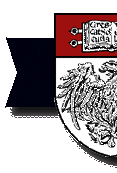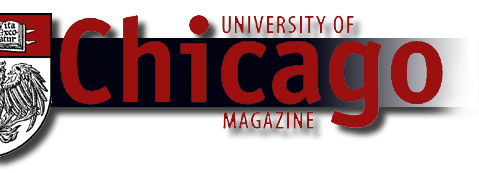|

 Learning
for a lifetime at the Graham School Learning
for a lifetime at the Graham School
Continuing
education has long been an important part of the U of C's intellectual
life. Today, the William B. and Catherine V. Graham School of General
Studies, formerly the Center for Continuing Studies, has a full-time
staff of 27 and annually attracts more than 10,000 students to credit
and noncredit courses in the arts and sciences, business, and the
pro- fessions. Holding most classes in the downtown Gleacher Center,
the school offers the Basic Program of Liberal Education for Adults-four
years of Great Books study culminating in a certificate-and has
just introduced three new professional certificate programs. Besides
serving as the administrative home of the University's summer session,
the school grants master's degrees through the six-year-old Master
of Liberal Arts Program. Faculty members include distinguished professors
and practicing professionals.
Graham School
Dean Daniel W. Shannon joined the University in January 1997, bringing
to the school 30 years' experience in continuing education and educational
technology, most recently as dean of outreach and continuing education
at the University of Wisconsin-Milwaukee. He earned his M.A. and
Ph.D. in political science from the University of Washington. Recently
the Magazine discussed the Graham School with Shannon.
How does
the Graham School fit into the U of C's tradition?
Along with
the College and the Press, "extension" was among the principal functions
of the University in President Harper's plan. So, for nearly 107
years, we've connected the faculty and the community in a number
of innovative ways: lecture and correspondence study, part-time
degree programs, and liberal studies. It's waxed and waned over
the years in its importance in the institution, but in a world in
which continuous learning is increasingly important for the nation,
for business, for government, and for the enhancement of people's
lives, the University is repositioning itself with reference to
the adult learner. The half-life of knowledge in many disciplines
is relatively short, and I believe we have a responsibility to our
alumni and the educated public to provide access to new knowledge,
skills, and technology produced by the University.
It is gratifying
to see such an active interest in continuing education on the part
of the faculty and administration. I've seen a lot of imagination
in regard to what we could be doing, the responsibility the University
has to the larger community.
What are
the Graham School's most popular courses?
Our largest
concentration of courses is in the arts and sciences, including
our Basic Program. For many years, these courses and programs have
been the core of our offerings. In more recent times, the need for
specialized programs in such areas as publishing, fund-raising,
and education have added new enrollees.
The Master
of Liberal Arts Program is the Graham School's only degree-granting
program-who enrolls in it?
The Master
of Liberal Arts student is a special student, able to balance life,
family, work, and academic pursuits in a very rigorous program.
When the program started in autumn 1992, there were 23 students.
This fall, there are approximately 125. The program is evenly split
between men and women, with an average age of 40. Less than five
percent are alumni of the University. These students are midcareer
adults who have returned to school to pursue either a course of
study that they pursued before but now wish to analyze in more depth
or that they didn't pursue by virtue of the professional track they
were on as undergraduates. For example, two of our summer graduates
are successful lawyers who earned an M.L.A. largely because they
wanted to read literature in the sciences and social sciences.
Like the Evening
M.B.A. Program, it's a demanding course of study with top-notch
faculty from the main campus, but it's taken on a more extended
calendar.
What programming
have you planned since becoming dean?
Among a number
of new initiatives, we've undertaken several new professional certificate
programs this fall. The Environmental Risk Assessment and Man- agement
Program is targeted for those in business and government who need
to understand the environmental regulatory situation. It will be
taught at Argonne National Laboratory, the first in what we hope
will be a series of collaborations. We've also created two new certificate
programs in our 25-year-old publishing series: one on medical editing
and writing, and the other on interactive media and online publishing.
During the
past summer, we began a new high-school program, Precollegiate Scholars,
which focused on various forms of writing. We'll be repeating this
next summer and adding an array of programs for high-school students
on campus and overseas.
To increase
the accessibility of our programs, we are expanding into the northern
suburbs and are offering courses at Lake Forest College. I hope
that during the next few years we can establish centers in the western
suburbs and in northern Indiana.
If you could
enroll in any course, what would you choose?
I would be
torn between our oldest, the Basic Program-in its 51st year-and
our newest certificate program, in interactive media and on-line
publishing. The Basic Program would be a wonderful discipline for
revisiting texts I read as an undergraduate, but would more fully
appreciate now, as well as having the excitement of discovering
new works and ideas I've had little time to explore because of professional
demands. In the latter case, as an amateur weaver and photographer,
the challenge of considering design questions in another medium
is intriguing. I am, as well, fascinated by the possibilities of
the Web for education, including publishing.
Interview by
Betsy Rossen Elliot.
|



